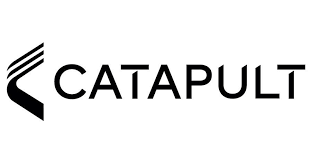
Catapult + Zendesk: High-performance CS as a competitive advantage
Catapult helps athletes track performance and unleash their full potential through wearables and video analysis. Because many of their users are involved in high-stakes scenarios, the company saw a need to offer tailored, timely support. With Zendesk, Catapult opened up a variety of communication channels and started triaging tickets to improve customer experience. By empowering agents with feedback, information, and time-saving tools, Catapult has gained a competitive advantage—outstanding customer support with 94 percent CSAT.

“What separates us from our competitors is our customer support. Zendesk enables us to address and prioritize issues quickly, and customers love working with our team.”
Thomas Powers
Vice President of Product Support at Catapult Sports
“The Zendesk team always listens to our needs and finds the best solutions. You can tell that the company really cares about its customers and I really appreciate working with them.”
Thomas Powers
Vice President of Product Support at Catapult Sports
Industry
Software Development
Headquarters
Melbourne, Australia
Number of agents
68
Number of tickets
76,000/year
94%
CSAT
6.4
Self-service ratio
4 hrs
Full resolution time
18 min
First response time
Founded in Melbourne in 2006, Catapult has helped countless professional and amateur athletes around the world unleash their potential. “We create technology that allows athletes to track their performance data and sync with both event data and video. We sync these data points together to help our users improve planning, training, and coaching strategies,” explains Thomas Powers, the Vice President of Product Support at Catapult Sports.
A malleable solution for a unique challenge
Serving a very diverse customer base—from world-class athletes to parents who need reliable wearables to safeguard their children—Catapult needed a customer service solution that could offer the right kind of support at the right time. “We have different tiers of customers and different solutions for each, all requiring different levels of support,” shares Powers. “For example, professional athletes are our high-impact tier, requiring urgent replies from our team. They also frequently travel all over the world, so we need to be available to them 24/7. We started looking for a solution that would help us prioritize customers in the appropriate way and help us become more efficient.”
Catapult also needed to synchronize data from Salesforce, giving its agents information about client health and integrating them with the sales and logistics teams. It was also looking for more reporting features to monitor how the support team was doing. This was not a simple task, since Catapult’s support team was available on a variety of channels: phone calls, chat, emails, and even SMS. “Imagine, for example, if a customer is standing in a noisy stadium and they cannot submit a ticket, all they can do is send an SMS,” says Powers.
Triaging for efficiency
The answer to this complex challenge came with Zendesk solutions. Eight years ago, Catapult chose Zendesk to help manage its service tickets, which today reach up to 76,000 a year. Through Zendesk, the company’s team of 68 agents started categorizing incoming tickets by customer tier, type, urgency, complexity and product. “We have a support coordinator team in our regional offices that can triage tickets and answer basic questions,” clarifies Powers. “If a customer is experiencing a technical issue that we need to troubleshoot, we handle them a bit differently and quickly escalate to a technician.. If a ticket is tagged as urgent—for example, if there is a critical issue during a game—the inquiry goes to the top of our list. Most importantly, we analyze all our incoming tickets to find ways look into the issue to improve our products”
During high-profile sports events like the FIFA World Cup 2022, Catapult’s dedicated staff monitors stadiums and alerts technicians when issues arise, relying on Zendesk and other solutions to triage tickets. “In Qatar, we wanted to make sure that our anchors were online and the players could be monitored correctly, so we were trying to solve issues proactively,” adds Powers.
Serving diverse needs
Catapult sets up different service-level agreements (SLAs), or commitments for response times, for each customer tier. “Each user that submits an inquiry has a customer ID that helps us understand who they are and what products they are using,” notes Powers. “We rely on Views to quickly see which ticket to prioritize and how many more minutes we have left to respond to a particular customer. For example, elite athletes fall into a different queue, and we respond to them within 15 minutes. We also have agents that service particular products or solutions, and the ticket ends up straight in their views.”
Zendesk is instrumental not just in managing customers but in managing internal team members as well. Catapult uses Explore dashboards to assess and improve its performance, give agents personalized formative feedback, and even make informed staffing decisions. “We measure customer satisfaction for each agent and we look at how long it takes them to handle tickets of different complexity,” says Powers. “Just like our coaches train their athletes, Zendesk allows us to coach our agents and technicians and hone their skills. And when a major event is coming up, we look at our historical data and make sure that we are staffing appropriately.”
Identifying patterns to build knowledge
By analyzing these detailed insights and categories, Catapult can identify hot topics and supply information proactively through its Help Center. This move enabled the sporting company to reach a 6.4 self-service ratio—meaning that over six unique users click on a help article for every user who raises a ticket. This reflects Catapult’s commitment to serving its customers in the fastest way possible.
“Every year, we focus on becoming even more efficient in helping customers answer their own questions,” Powers shares. “The Guide Knowledge Capture app has also made the entire process easy for our agents, enabling them to prioritize articles based on common tickets raised at the time. Giving customers a quick step-by-step guide for common issues helps both sides eliminate repetitive steps and save time.”
Better tools also make for a happier team. “When our agents log into Zendesk, there are no distractions, and they are looking at exactly what they should be looking at. They are not overwhelmed. This really enables us to be more efficient. Our agents love working with Zendesk.”
Gaining a competitive edge
With greater customer differentiation, more diverse support channels for every need, constant, sweeping support, and an empowered team, Catapult’s CSAT score has reached an all-star high of 94 percent. The team even exceeds its own expectations: instead of a target 30-minute first response time, Catapult takes, on average, 18 minutes to respond to incoming inquiries. While it aimed to fully resolve all tickets within 48 hours, it has succeeded in averaging a 4-hour full resolution time.
As Catapult scales further, the company continues to incorporate more insights and communication channels, exploring the possibility of integrating Whatsapp messaging. “We’re also looking into potentially incorporating Google Analytics to observe our users and see which articles or videos are more useful to them, so we can continue to improve their experience,” concludes Powers. “I think the reason why our CSAT is so high is that we find outstanding people who love what they do. We often have customers go out of their way to compliment our staff using the survey responses. Our customers really enjoy working with our agents and find comfort in knowing we are always here to assist them through any issues that arise”